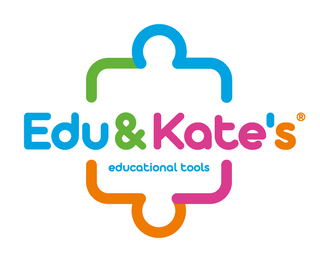10 Benefits of learning while playing with physical toys and games
Play is a crucial element in a child's development as it helps them acquire knowledge, develop social and emotional skills, shape their personality, foster creativity, and enhance their ability to perceive. Moreover, through play, children learn to cooperate and build social relationships, which are valuable in becoming mature adults capable of problem-solving.
From an early age, it is important to stimulate children's executive functions to support their learning process. Edu&Kate's physical games play a key role in promoting the development of various skills, offering multiple benefits in their academic, professional, and social life.
Here are 10 benefits of using physical games:
1. They stimulate fun:
First and foremost, playing with physical and educational games is meant to be enjoyable. When children know that they have the opportunity to engage in activities they love, it can motivate them to complete their daily tasks more willingly.
2. They stimulate cognitive development:
Cognitive development encompasses a range of brain capacities associated with acquiring knowledge. By using games, children can stimulate cognitive abilities such as attention, memory, language, reasoning, decision-making, and perception. Furthermore, stimulating cognitive areas can lead to an increase in intellectual capacity.
3. They help develop visual perception:
Engaging in physical games aids in the development of visual perception, which involves the brain's processing of sensory information received through sight. This ability allows children to detect an object's characteristics like color, shape, texture, and size, laying the groundwork for proper image reading.
4. They contribute to the development of fine motor skills:
Fine motor skills refer to the efficient, precise, and controlled use of the small muscles in our body, particularly those in the hands and fingers. Physical games that require fine hand and finger movements with control and dexterity can help stimulate the development of these motor skills.
5. They provide the development of visual-motor coordination:
Manipulating physical educational games promotes the ability to coordinate vision with overall body movements as well as fine movements. Stacking, fitting, opening and closing, putting and taking away, painting, cutting, and various other activities help stimulate visual-motor coordination.
6. They help develop memory
Enhancing a child's memory capacity is incredibly valuable. Studies have shown that improved memory capacity can lead to increased self-awareness, communication skills, social skills, and self-confidence. Memory games exercise our brain by focusing our attention, training our observational skills, quick thinking, and even our photographic memory. Enjoying the benefits of memory games not only during childhood but throughout life can keep our brain attentive to details and focused on activities, while also maintaining good memory overall.
7. They increase attention and concentration:
At a time when hyperactivity and attention deficit are commonly discussed and medication usage is prevalent, play provides an outlet for children to release their energy before focusing on tasks that require concentration. Moreover, play itself can be a strategy to help children become more focused, as they pay attention and engage with tasks they find enjoyable and do not perceive as burdensome or obligatory.
8. They enable the development of linguistic intelligence:
Linguistic intelligence encompasses the ability to read, write, speak fluently, and use language to express thoughts, desires, facts, and information. Age-appropriate physical games that involve communication with others and stimulate the acquisition of information, knowledge, and literacy skills can help stimulate linguistic intelligence. Childhood is a critical phase for language comprehension and acquisition, making these stimuli particularly important.
9. They strengthen the development of logical-mathematical reasoning:
Mathematical reasoning advances through the understanding of fundamental mathematical concepts and the gradual acquisition of skills related to spatial visualization, mathematical communication, and problem-solving. Manipulating physical games benefits the acquisition of these skills as they encourage exploration, reasoning, association-making, and the development of attention, concentration, and creative problem-solving abilities.

